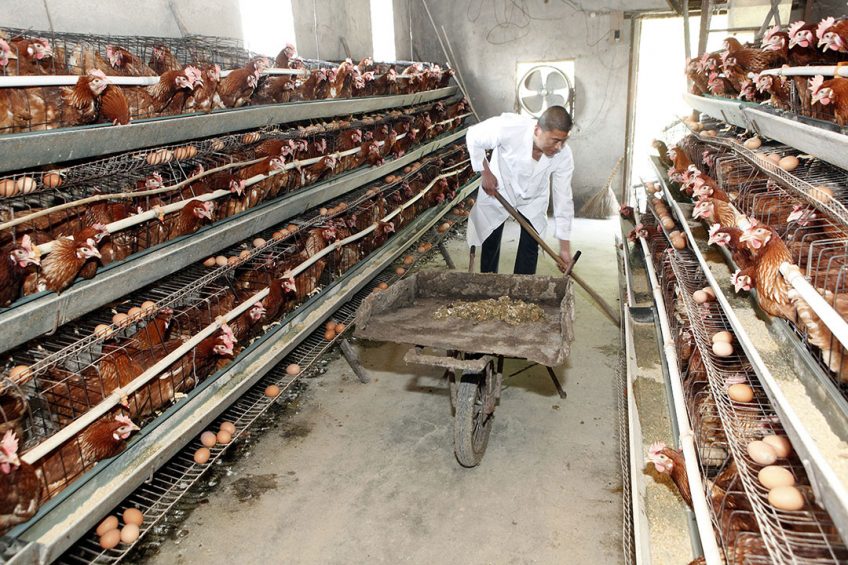Food companies ask EU Commission to phase out enriched cages

Leading food companies urge the European Commission and European MEPs to phase out cages in animal farming, starting with enriched laying hen cages.
The firms, including Nestlé, Mondelez International, Unilever and Aldi Nord, co-signed the letter which emphasises that the business case for phasing out enriched cages is strong, particularly at EU level, noting that “cage-free systems are widespread, economically viable, and provide better living conditions for hens.” The signatories stressed that the revision of the EU’s animal welfare legislation, which is currently under preparation, is the ideal opportunity to end the use of cages in animal farming across the EU.
Figures from the European Commission suggest that just under half all eggs in the EU are from enriched cage systems, while 32.5% come from barn systems, 11.8% are in free range units, and 6.2% are farmed organically. The letter commends the aims of the “End the Cage Age” campaign which has been spearheaded by Compassion in World Farming with backing from 170 European NGOs. Launched in 2018, the campaign had gained 1.4m signatures within a year.
Nestlé meets 2017 pledge
Nestlé is now only using cage-free eggs in all of its food products in Europe, meeting a pledge it made in 2017. The company uses around 4,500 tonnes of eggs annually in its food brands. Magdi Batato, Nestlé executive vice-president and head of operations, said the company wanted to help drive change from within and support the industry in transition.
Drive to be cage-free but 2025 commitment looms nearer
Companies need to speed up their rate of transition to cage-free production to meet their 2025 commitment, says Compassion in World Farming (CIWF).
“We are proud to have achieved 100% cage-free eggs in our food products across Europe. Together with civil society, our farmers, and customers, we will continue to improve farm animal welfare to drive progress and ensure the highest possible farming standards throughout our supply chain,” he added.
Thea Koning, senior global external affairs manager (foods and refreshment) at Unilever, added: “At Unilever, we want to be a force for good in foods, and are fully supportive of the End the Cage Age campaign. In Europe, all our brands, including Hellmann’s, Amora and Calve have used 100% cage-free eggs since 2009. We believe the End the Cage Initiative shares the ambition of the Farm to Fork Strategy to improve animal welfare, starting with caged hens.”
Designer vaccines for free range poultry
Preventative veterinary care is gaining in importance, but vaccinations offer no panacea. That said, farm-specific inoculations are becoming more mainstream. Autovaccines, tailored per farm, can provide a solution to the many different E. coli strains, erysipeloid and Pasteurella on free range farms.
The letter was welcomed by Dr Tracey Jones, director of food business at Compassion in World Farming, who said: “It’s great to have these leading businesses supporting our call to phase out cages for laying hens across the EU, but given Brexit, we must maintain pressure on the UK government too.
“In the UK, all the major supermarkets have either ended the sale of eggs from caged hens or have committed to do so by 2025. We need UK legislation, however, to be in place to eliminate all caged production and to stop the import of eggs, particularly ingredient egg, from caged systems.
“We have a newly established good barn standard in the UK for laying hens and a high level of free-range production which we must support for both shell and ingredient eggs.”
Scientists call to phase out enriched cages
Last month 140 scientists called for the phasing out of enriched cages, highlighting that the European Food Safety Authority (EFSA) had concluded that in enriched cages “the behavioural repertoire is still restricted compared with birds in non-cage systems,” saying hens needed to perch, forage and dust-bathe properly.












